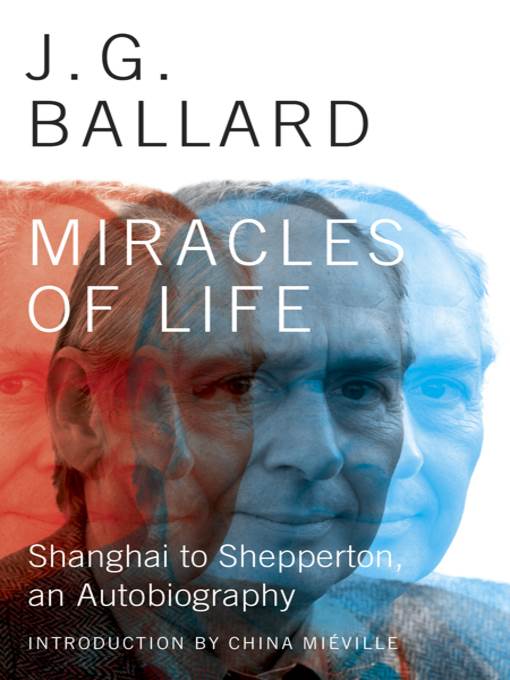
Miracles of Life
Shanghai to Shepperton, An Autobiography
کتاب های مرتبط
- اطلاعات
- نقد و بررسی
- دیدگاه کاربران
نقد و بررسی

Starred review from November 5, 2012
Completed just before he died in 2009 at age 79, this compelling memoir by SF novelist Ballard (Kingdom Come) vividly portrays the vanished world of the British upper classes in Shanghai and Cambridge before and after WWII. Some of Ballard's real-life adventures growing up in Shanghai appeared in his dazzling 1984 novel (and later Spielberg vehicle), Empire of the Sun, and here he fleshes out his privileged life as the son of a prominent China Printing and Finishing Company executive living in a comfortable house in the international suburbs of Shanghai full of servants named only No. 1 boy or No. 2 Coolie. Despite the Japanese invasion of 1937, a pleasant social life continued, insulated from Chinese destitution, yet in telling, lurid flashes, Ballard as a boy became aware of the wretchedness of others' lives around him and the violence the war wrought. Interned from 1943 until the end of the war with other internationals at the malaria-prone Lunghua Camp, Ballard felt an intimacy with his parents he had never known before, and which he later imparted in the single-handed raising of his own three children after the untimely death of his young wife, Mary. From his first novel in 1963, The Drowned World, Ballard lived "on the fringes of literary London," plying his trade in science fiction because of what he gleaned in its "vitality" and "visionary engine." Early influences like Victor Gollancz, Kingsley Amis, and Eduardo Paolozzi appear within these pages of Ballard's poignant and ephemeral "stage set."

November 15, 2012
The unpredictably serene memoir from one of the most daring voices in fiction. Ballard (Kingdom Come, 2012, etc.), who died in 2009, was not just a revolutionary. He also demonstrated his extraordinary talent with a narrative range that ran from autobiographical fiction to the psychosexual antics of Crash. His 1969 collection The Atrocity Exhibition was so controversial, in fact, that Doubleday pulped the entire first print run. This autobiography, first published in the United Kingdom four years ago, was widely expected to be a revelation. Many were surprised to find that the book is instead a warm, nostalgic and kind remembrance, if lackluster in portraying the richness of the author's work. For fans of Empire of the Sun, the first half of the book portrays Ballard's experiences in the Lunghua internment camp near Shanghai during World War II and sheds light on his relationship with his parents. He also describes the tragic death of his wife, just after he started to establish himself as a writer, and to a lesser degree his unconventional relationship with lifelong partner Claire Walsh. Ballard reserves much of his affection for his children, for whom the memoir is named and who inspire unexpected humor. "Some fathers make good mothers," he writes, "and I hope I was one of them, though most of the women who know me would say that I made a very slatternly mother, notably unkeen on housework, unaware that homes need to be cleaned now and then, and too often to be found with a cigarette in one hand and a drink in the other--in short, the kind of mother, no doubt loving and easy-going, of who the social services deeply disapprove." The author pays surprisingly little attention to the work itself. He gives cursory mention to the firestorm that surrounded The Atrocity Exhibition, while he frames other novels in indistinct memories of their Hollywood adaptations. An affectionate, incomplete recollection of life's rich pageant.
COPYRIGHT(2012) Kirkus Reviews, ALL RIGHTS RESERVED.

January 1, 2013
Empire of the Sun (1984) outsold all my previous books put together, Ballard says. The story of a boy growing from child to teenager in a WWII alien internment camp in Shanghai, the novel is based on personal experience, from which Ballard strips the alterations of fiction in the more engaging first part of this autobiography written in the shadow of his imminent death from cancer. Part 2, not much longer than the first, accounts for the rest of Ballard's 79 years perfunctorily and even scrappily; it's full of provocative but undeveloped sentiments about literature, in particular. Since Ballard's most commonly thought of as an sf writer, it's remarkable that he has so little to say about the genre, apart from his strong preference for setting his sf in the present and in psychological, rather than outer, space. He likens his preferred fictional space to the aura of film noir, but there is no question that his memoir's part 1 is set in it, and that there it is brilliantly and beautifully illuminated.(Reprinted with permission of Booklist, copyright 2013, American Library Association.)

























دیدگاه کاربران